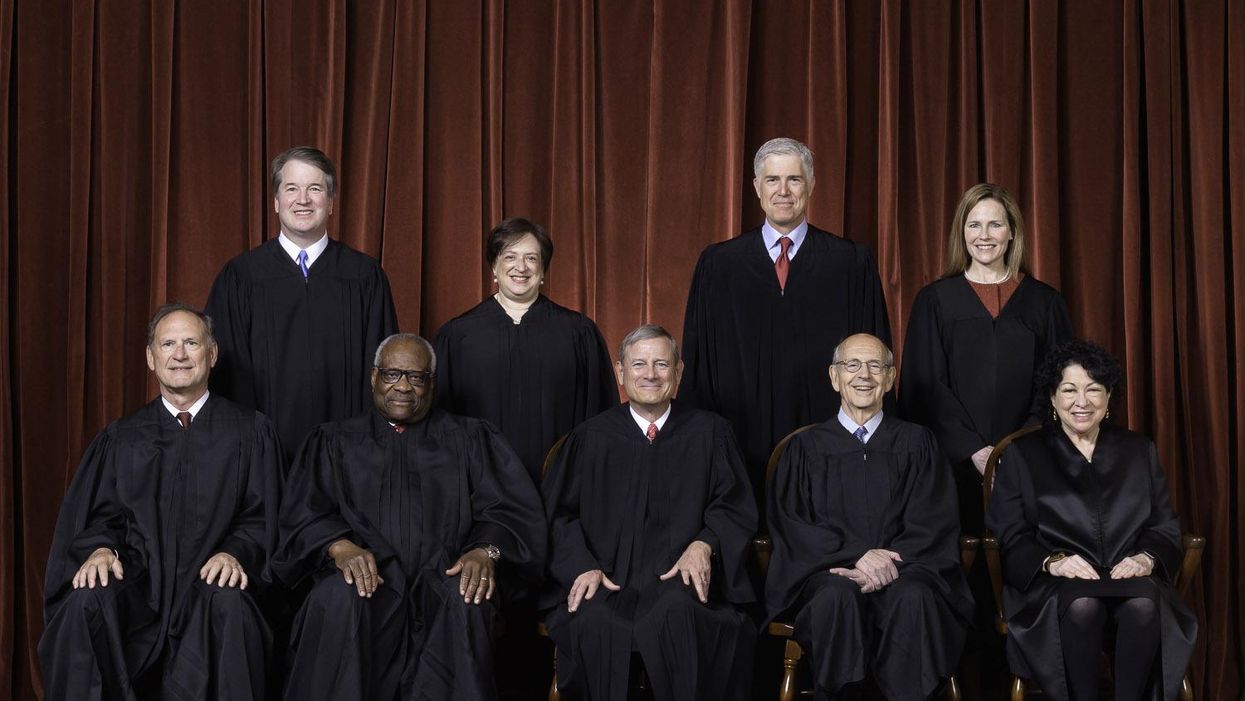The Supreme Court’s ‘credibility’ is suffering as John Roberts’ influence collapses: law professor


Although the confirmation of Judge Ketanji Brown Jackson is historic — she will be the first African-American woman on the U.S. Supreme Court — it isn’t a game-changer, as Republican appointees will still have a 6-3 majority. But when Justice Amy Coney Barrett replaced the late Justice Ruth Bader Ginsburg in 2020, that was most definitely a game-changer — one that greatly reduced Chief Justice Roberts’ power and influence. And University of Texas law professor Stephen I. Vladeck, in an op-ed/essay published by the New York Times on April 13, argues that the Roberts Court is now the Roberts Court in name only.
“The Court’s destiny increasingly appears to be controlled by Justices Brett Kavanaugh and Amy Coney Barrett,” writes Vladeck, who lays out some ways in which the High Court has changed since Barrett replaced Ginsburg. The Court’s right-wing majority, according to Vladeck, is now “acting more like politicians than judges” and has been misusing the “shadow docket.”
“Far more than ever before,” Vladeck laments, “the Court is using procedural orders on applications for emergency relief while appeals work their way through the courts to resolve disputes affecting the lives of millions of Americans — whether in blocking a rule from the Occupational Safety and Health Administration on a vaccination mandate for large employers, refusing to block Texas’ ban on most abortions after six weeks or putting back into effect congressional district maps that two Alabama lower courts struck down as violating the Voting Rights Act. Time and again, the justices are ordering lower courts to treat these decisions as precedents.”
Such rulings, according to Vladeck, “have provoked increasingly strident dissents from the Court’s liberal justices.”
“Last September, when the justices refused, by a 5-to-4 vote, to halt the patently unconstitutional Texas abortion law, Justice (Elena) Kagan criticized the majority not just for the substance of its ruling, but also, for what that ruling said about the shadow docket,” Vladeck notes. “She wrote, ‘The majority’s decision is emblematic of too much of this Court’s shadow-docket decision making — which every day, becomes more unreasoned, inconsistent and impossible to defend.’”
Vladeck wraps up his op-ed/essay by warning that the High Court’s “credibility” and “legitimacy” are suffering, and Roberts himself is concerned.
“The proliferation of principle-free decisions affecting more and more Americans — and with a clear, troubling tendency of favoring Republicans over Democrats — calls that legitimacy into increasingly serious question,” Vladeck explains. “It’s understandable, then, why Chief Justice Roberts would finally speak out. No one better understands the stakes for the Court’s credibility — and institutional viability. If even his objections can’t persuade the other conservatives to stop abusing the shadow docket, then that may signal the willingness of the court’s conservative majority to go even further in the future and to use the shadow docket to resolve even more significant and contentious constitutional questions.”